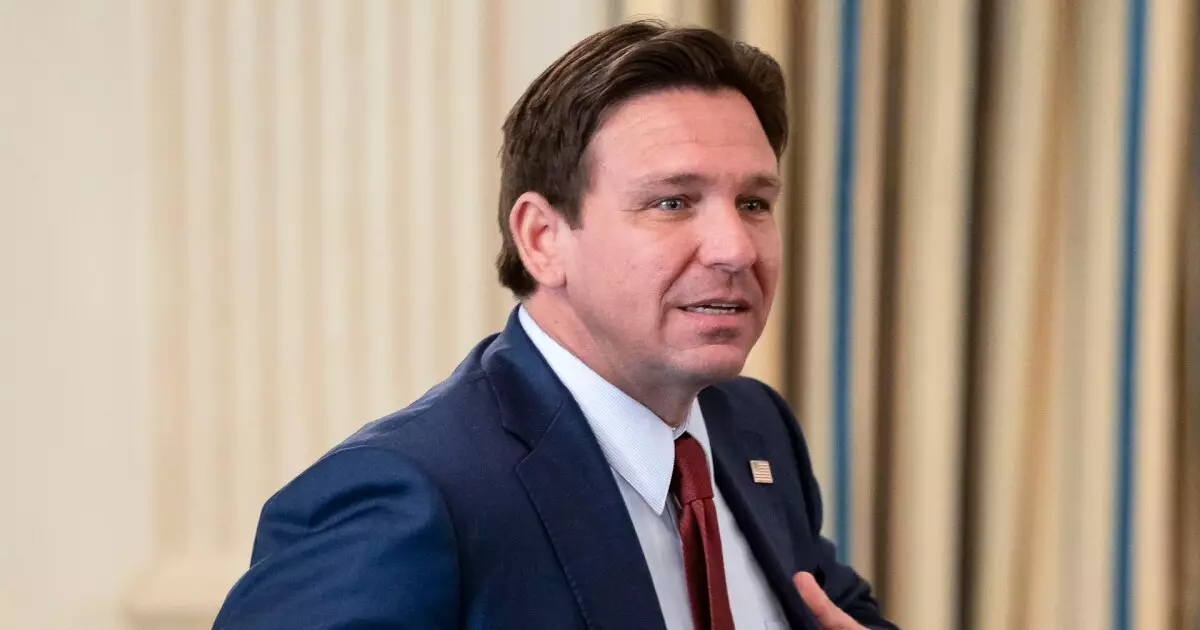Florida’s recent budgetary decisions encapsulate a delicate juggling act that leaves more questions than answers. The state’s legislature has approved a $115.1 billion budget, a slight reduction from last year’s $118.6 billion figure. While this may sound like a responsible fiscal move, the underlying controversies and shifts in tax strategies expose vulnerabilities that could haunt Floridians for years to come. The announcement came amidst a backdrop of political maneuvering, with Governor Ron DeSantis contemplating his future while he prepares to wield his veto power. The ambitious flair of previous tax cuts has dimmed, leaving behind a muddled compromise that raises alarm about the state’s fiscal health.
A Compromised Tax Strategy
Initial proposals that promised significant tax cuts, such as a reduction in the sales tax rate and local property tax rebates, were quietly shelved. Instead, legislators hastily settled on more modest reductions—eliminating the commercial rent tax and introducing a sales tax holiday for affordable clothing. Collectively, these changes will supposedly lighten the tax burden by roughly $1.07 billion annually, but they pale in comparison to the needs of an evolving and, frankly, beleaguered economy. This seems less about genuine fiscal prudence and more about political theatrics, keeping constituents temporarily appeased while deferring necessary and meaningful reforms.
The less aggressive tax cuts might appear sensible in a vacuum. Still, as state and national economies teeter on the brink of recession and face pressing long-term challenges, such half-measures signal an aversion to confronting deeper fiscal realities. As Joseph Krist aptly noted, the decisions appear more like political punts than concrete solutions, leaving Floridians to wonder who truly has their best interests at heart.
Political Opportunism Over Pragmatic Solutions
It’s hard to escape the notion that the leadership’s focus is skewed towards securing the political future of influential figures rather than making the hard decisions that impact everyday lives. DeSantis’s actions, which are widely viewed as positioning his wife for a future campaign, overshadow substantive governance. While token gestures like modest tax cuts might serve as political press releases, they gloss over the more grave fiscal threats looming on the horizon. As economist Sadaf Knight warned, the budget reflects an alarming continuity of “business as usual,” signaling a lack of engagement with looming federal funding cuts and a projected state deficit of $6.9 billion by 2027-28.
It is this cavalier politicking around fiscal responsibility that feels particularly disingenuous. The conversations that should be happening—discussions on Medicaid funding, homelessness, and educational investment—are notably absent, overshadowed by self-serving ambitions. Politicians seem engrossed in the pursuit of personal agendas, leaving public welfare in the dust.
A Mixed Bag of Fiscal Responsibility
In another vein, it’s worth mentioning Florida’s long-standing tradition of fiscal conservatism and debt-reduction strategies. The recent budget does set forth aggressive measures to tackle debt, proposing $250 million annually from the general fund for early bond payments. Yet, while lowering debt can alleviate future financial stretches, the question lingers: how does this relate to present-day citizen needs? If reductions come at the expense of vital public services and investment in infrastructure—things that secure a better tomorrow—then what does fiscal prudence truly signify?
As decisions are made to eliminate over 1,700 vacant positions across various state agencies, it’s prudent to scrutinize the implications of such cuts. While trimming bureaucracy may sound pragmatic, the reality is that every cut represents a loss of potential impact in health care, education, and community services. The vision of a leaner, more efficient government should not come at the price of citizen welfare.
Preserving the Future Through Rainy-Day Funds
As Florida gears itself for potential economic storms ahead, the $429.6 million set aside for the rainy-day fund is a glimmer of hope. However, simply preserving funds while neglecting immediate public needs presents a concerning paradox. The proposal to raise the maximum cap of this fund to 25% from 10% may eventually be prudent, but it should not be used as a stopgap measure that hampers necessary investments in education, healthcare, and infrastructure.
Florida’s exalted triple-A credit ratings from Moody’s, S&P, and Fitch create a façade of security, but undercurrents of political shortsightedness threaten this facade. The pursuit of fiscal discipline is admirable, but not at the expense of community well-being and essential services. If the current leadership continues to prioritize optics over substance, it risks jeopardizing the very stability these commendable ratings suggest.
In short, Florida’s budget saga is a complex tapestry of political maneuvering, tentative tax strategies, and a comedy of fiscal errors. The future remains uncertain, but one thing is abundantly clear—merely shifting numbers in a balance sheet can’t paper over deeper issues. Addressing them demands more than just political theater; it requires a commitment to the very citizens purportedly represented.


Leave a Reply